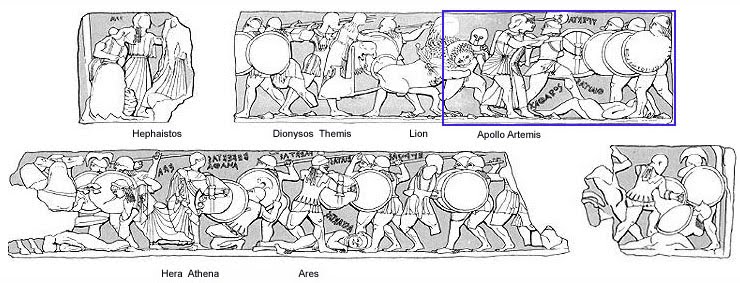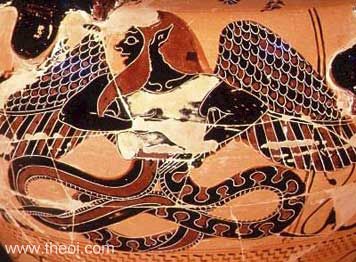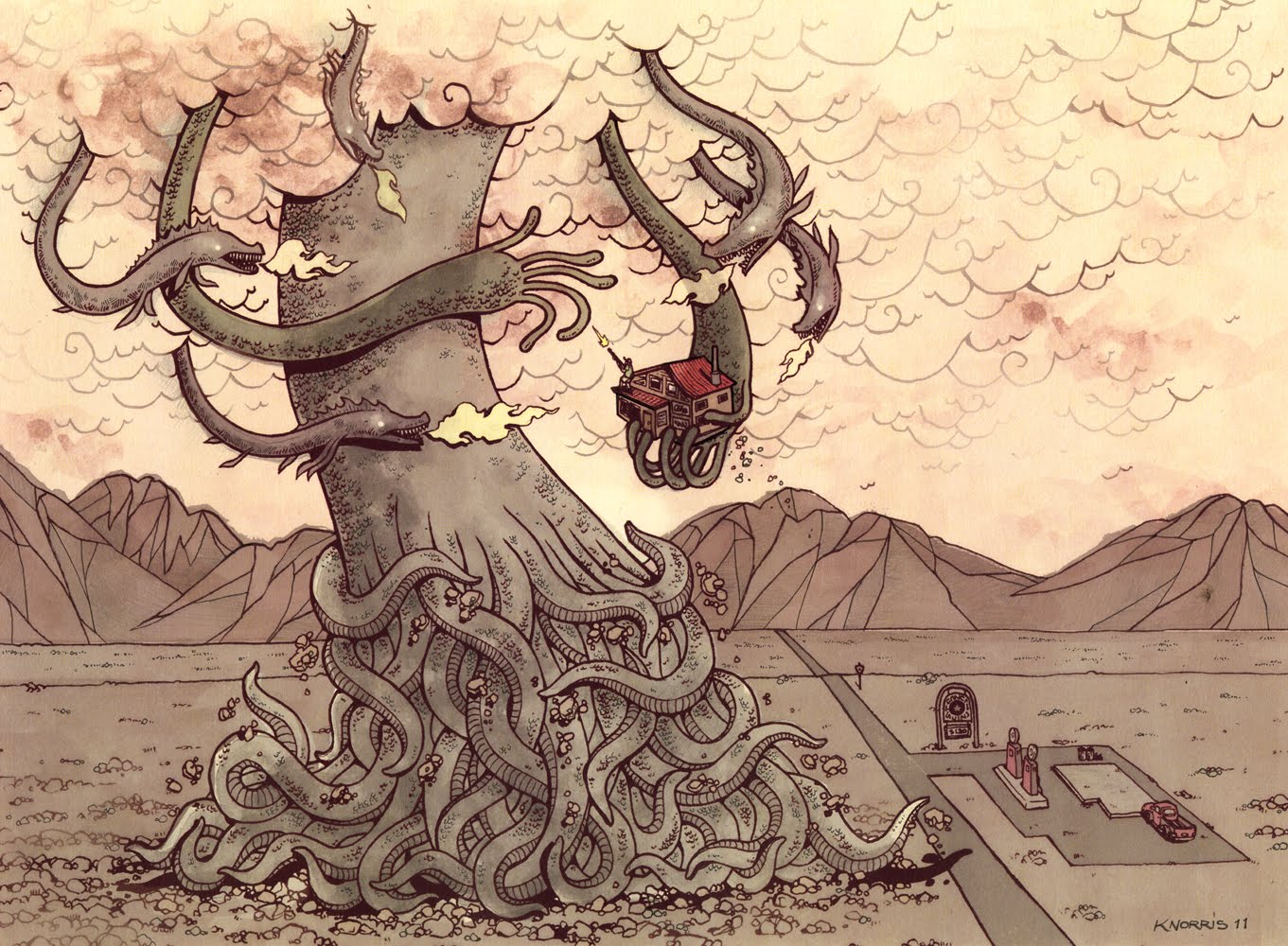Zeus's Rise to Power and the Creation of Mortals
The Battle between the Olympian Gods and the Giants.

North Frieze of the Siphnian Treasurey at Delphi
THE TITANOMACHY: ZEUS DEFEATS HIS FATHER CRONUS
This epic battle was waged for ten years between Zeus and the Olympians and Cronus and the Titans. Cronus fought from Mt. Othrys; his allies were the Titans except for Themis and her son PROMETHEUS. Prometheus’ brother ATLAS sided with Cronus.
Zeus fought from Mt. Olympus and his allies, in addition to Themis and Prometheus, were his brothers and sisters, who had been swallowed by Cronus but later regurgitated, namely: Hestia, Demeter, Hera, Hades, and Poseidon. Also on his side were the Hecatonchires and the Cyclopes.
Zeus was victorious and the Titans were imprisoned in Tartarus, guarded by the Hecatonchires; and Atlas was punished with the task of holding up the sky.
THE GIGANTOMACHY: ZEUS DEFEATS THE GIANTS AND TYPHOEUS
Giants, called GEGENEIS, since they were “born from the Earth,” challenged Zeus and the new order of the gods. They were defeated in a fierce battle and were imprisoned under the earth. Volcanoes, when they erupt, reveal the presence of the giants below.
TYPHON was a ferocious dragon-god, whom earth produced to do battle with Zeus, either separately, or alongside the giants in the great Gigantomachy. Zeus' triumph singles him out as an archetypal dragon-slayer.
The giants, OTUS and EPHIALTES, in a separate attack, failed in their attempt to storm heaven by piling Olympus, Ossa, and Pelion, one upon the other.
The Titanomachy and the Gigantomachy are often confused in literature and art, and details vary considerably.
Most commonly the Gigantomachy signifies the victory of civilization over disorder, especially the triumph of Greek over barbarian culture, and as a means for expressing Greek self-awareness.
God of War 2-Zeus,Poseidon & Hades vs Cronos, Atlas & Typhon
THE SANCTUARY OF ZEUS AT DODONA
TYPHON

Typhon

TYPHON vs. ZEUS
Typhon is the offspring of Gaia and Tartarus. His mate is Echidna and both were so fearful that when the gods saw them they changed into animals and fled in terror.
Typhon's hundred, horrible heads touched the stars, venom dripped from his evil eyes, and lava and red-hot stones poured from his gaping mouths. Hissing like a hundred snakes and roaring like a hundred lions, he tore up whole mountains and threw them at the gods.
Zeus soon regained his courage and turned, and when the other gods saw him taking his stand, they came back to help him fight the monster. A terrible battle raged, and hardly a living creature was left on Earth.
But Zeus was fated to win, and as Typhon tore up huge Mount Aetna to hurl at the gods, Zeus struck it with a hundred well-aimed thunderbolts and the mountain fell back, pinning Typhon underneath.
There the monster lies to this very day, belching fire, lava and smoke through the top of the mountain.
Echidna, his hideous mate, escaped destruction. She cowered in a cave, protecting Typhon's offspring, and Zeus let them live as a challenge to future heroes.
Echidna and Typhon's children are the Nemean Lion, Cerberus , Ladon, the Chimera, the Sphinx , and the Hydra
http://felc.gdufs.edu.cn/jth/myth/Greek%20Online/Typhon.htm